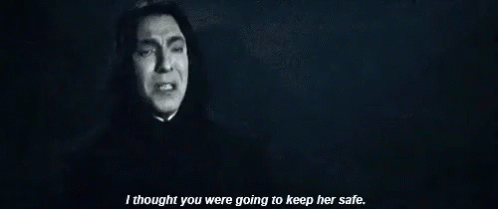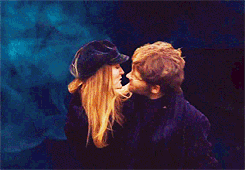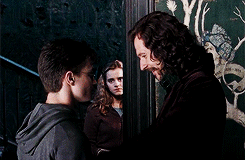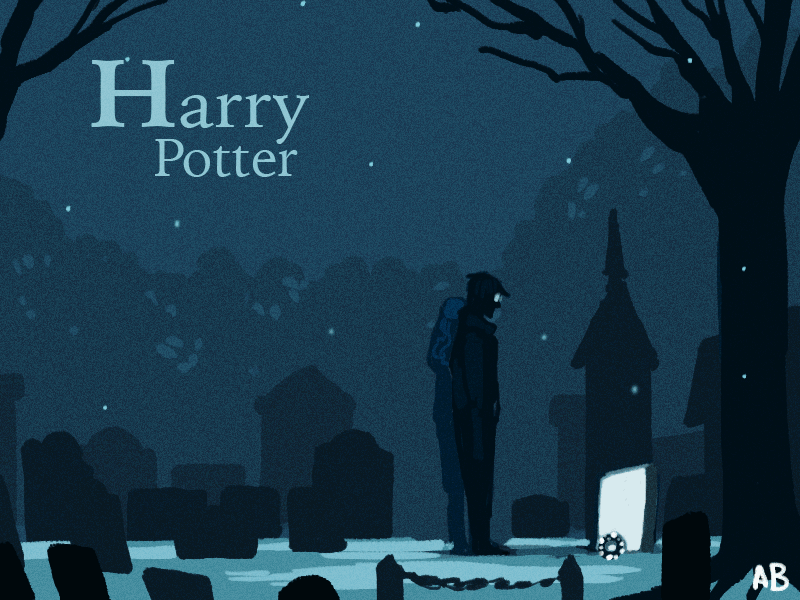Misplaced Blame in the “Harry Potter” Series
There are unfortunate events that occur in the Harry Potter books, some of the worst ones caused by misplaced blame. Too often, one character is blamed for something that isn’t their fault – something they couldn’t control or something that was someone else’s fault entirely. For example, Snape blamed Dumbledore for Lily’s death. In reality, Dumbledore had nothing to do with Lily dying. Dumbledore could only do so much to protect the Potter family, especially since he wasn’t their Secret Keeper. Also, there was the prophecy to think of. Dumbledore knew that Harry would be attacked by Voldemort no matter what, so whatever Lily chose to do wouldn’t change that. Like Dumbledore with the Potters’ deaths, there are many more examples of characters being wrongly accused in the Potter books.
Draco blames Hagrid for Buckbeak’s attack.
Whenever Draco ends up in trouble, he blames someone or something else instead of himself. Draco never wants to look like a fool, so he believes that blaming someone else will make him look superior. In Harry Potter and the Prisoner of Azkaban, Hagrid is teaching a lesson when Draco chooses to ignore Hagrid’s instructions and tease one of the magical creatures. The hippogriff, Buckbeak, attacks Draco but doesn’t even leave a scar. Draco blows this event out of proportion and screams that it was Hagrid’s fault, not his own. In Draco’s eyes, Hagrid must have made his beast attack Draco. Yet Hagrid did nothing to cause the attack.
Sirius blames himself for the deaths of James and Lily.
It’s common for people to experience misplaced guilt after the death of a loved one, and Sirius is no exception. When we first meet Sirius in Prisoner of Azkaban, his grief has been stunted by his time in prison. While it’s been 12 years since James and Lily died, it feels like yesterday to Sirius. He’s still mourning his friends, and even worse, he believes their deaths to be his fault. Originally, Sirius was going to be the Potters’ Secret Keeper, making him responsible for their safety. However, this task fell to Peter instead. Once Peter betrayed the Potters, Sirius felt guilty that he didn’t see it coming. But no one saw that betrayal coming – not even Dumbledore! Instead of simply grieving, Sirius blames himself for something he had no knowledge of.
Harry blames himself for Sirius’s death.
So many people that Harry has known have died of unnatural causes. These unlucky odds make it difficult for Harry not to feel survivor’s guilt. He questions why he lived when maybe someone else deserved to live. Harry feels this the most after the death of his godfather. Even though Harry couldn’t have done anything to prevent Sirius’s death, Harry still blames himself for much of Harry Potter and the Half-Blood Prince. First of all, Harry was in trouble, and Sirius came to save him. Instead of understanding that Sirius wanted to save Harry, Harry believes that Sirius’s presence at the Ministry is what killed him. In Harry’s mind, if it wasn’t for him, Sirius would be alive. Also, following Sirius’s death, Harry has lost the last family member that he was close to. Even though Harry wasn’t the reason Sirius died – Bellatrix was – Harry believes that it was his fault.
Ron blames Harry for his fame.
While Ron has always been a loyal friend to Harry, Ron has experienced moments of jealousy. Ron, who was never given a lot of attention while growing up, is angered by Harry’s fame. Ron believes that Harry is always being praised. To Ron, Harry is everyone’s first choice for everything. This makes Ron feel inadequate, and he doesn’t know what to do except blame Harry for the fame he never asked for. This blame is misplaced because Harry doesn’t want to be famous, nor does he encourage it.
Petunia blames Lily for being a witch.
This example is self-explanatory. Did Petunia really have to hate Lily for being a witch? Lily didn’t ask for it; it was just the way she was born. Not only is this blame misplaced, but it’s absurd.
Harry blames himself for Snape escaping custody.
Harry experiences more than his fair share of guilt. Following the death of Dumbledore, Harry blames himself for Snape escaping capture. Harry didn’t attack Snape originally since he assumed that Snape wasn’t working with the Death Eaters. However, after Snape kills Dumbledore, Harry is infuriated. He races after Snape, not wanting the man to escape justice. In his eyes, Snape is Dumbledore’s killer. Harry wishes he could have stopped Snape from escaping and killing Dumbledore in the first place. For these reasons, Harry takes on another burden of blame.









